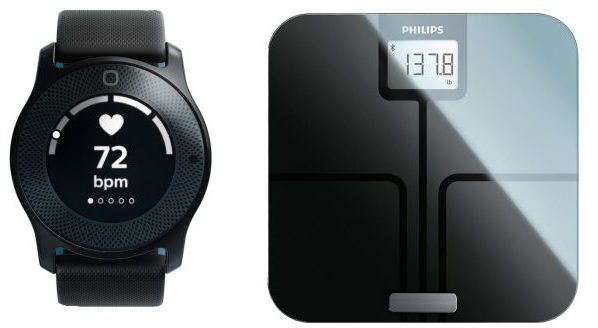Philips launches products as a smart watch or a scale that stores information of physical activity to study chronic diseases.
When you go to an electronics store and you get closer to the section of smart watches or of quantifiers, you check at a glance that there are many available offers, of all shapes, colors and brands. The vast majority of these clocks do more or less the same, give you time, allow you to see the calories you have burned or the steps that you take from midnight. The new Philips Health Watch tries to go one step further. It also counts the calories, but focuses on track to control chronic diseases.
At first glance this clock seems to look other that is available in a market saturated with options. But in reality, apart from showing the time and your heart rate, steps and calories burned, is able to keep important information such as resting heart rate, breathing at rest, the active time, the time you spend doing sedentary work and dream.
The idea is to use all this personal information about your health and combine it with other accessories such as a scale, a digital thermometer or blood pressure monitor.
The clock is not a physical activity monitor, but it behaves as such. Thanks to its sensors can identify when you aren’t doing anything and therefore increasing minutes of sedentary life, but also when you do sport, either walking, running or cycling.
Obviously all this not would serve of nothing if it is not connected to an application, called HealthSuite Health, which stores information of all these gadgets, showing your activity on graphs by days, as well as the evolution of your body. You can also store information of the meals that you eat daily with a breakdown of nutritional information.
With all this collection of products and information available to doctors, you can keep better track of chronic diseases, and perhaps in the future be part of a large study as it is doing in some countries using applications such as ResearchKit.
Perhaps the problem of these products is that the prices are still quite expensive for many people with these medical problems. The watch costs $250, $60 for thermometer, blood pressure meters between 90 and 120 dollars and finally, the scale, costs $120.
